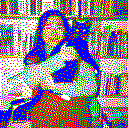The Union* for Unvalorized (design) Labors
Why are all my designer friends overworked and underpaid?
“The Union* for Unvalorized (design) Labors” is a research project and workshop series which started from the question “Why are all my designer friends overworked and underpaid?” In this project, I proposed the term ‘unvalorized design’ to refer to the types of design that create values that are not economically compensated fairly. As a speculative experiment, I insisted on creating an organization that represents the precarity of unvalorized designers. The process of elaborating on this union consists of a series of interviews and workshops. In the interviews, the stakeholders of the cultural sector around unvalorized design were invited, including artists (Alina Lupu, Morgane Billuart), and Designers (Pete Fung, Marijn Bril, Cherry-Ann Davis) whose practices concern the precarity of creative labor, as well as the other stakeholders of the cultural sector around design such as a journalist and activist (Wouter Hillaert), a lawyer (Tobias van Royen), and an educator (Imad Gebrayel). They were asked how can the value of unvalorized design be recognised more significantly and how the livelihood of its practitioners can become more sustainable.
The interviews were followed by an ongoing workshop series that gathered the participants who consider themselves as ‘unvalorized designers’. The findings from the interviews were provided as sources of inspiration for the workshop participants. They discussed what their shared precarity is, what are their corresponding demands, and to whom and how those demands can be addressed. The opinions of the contributors didn’t always align and sometimes required a process of negotiation. Gathering people under the slogan of a fictional organization was a bottom-up way of speculating that will never reach a conclusive state but remain malleable to make more bodies and stories involved.
The project was conceptualized in an article with the same title published in Ponton Magazine by Z33.

Since the issue of precarity is closely tied to the specificities of local contexts, the workshop is adapted to the different countries and cities where it is held. One edition of the workshop was situated in Halle, Germany, as a part of the Dis/Assembly of Performative Things event. The subsequent edition took place in Eindhoven, hosted by Onomatopee, as a part of the HistoricALL! program and the discussion was published in an open letter format that can circulate within the design scene.
















Portfolio - Noam Youngrak Son
For a more visual overview, check my Instagram.
| Image | Title | Category | Year | Notes | Funding |
|---|
Noam Youngrak Son is a communication designer, design theorist, and cultural worker. Their design work encompasses small-scale publishing projects, speculative worldbuilding, workshops, lectures, writing, net art, and occasional performative interventions. As a cultural worker, they have co-organized the Ghent-based queer publishing collective Bebe Books since 2021. Son has expanded their focus from design to theory in order to critically engage with the ontology of the design industry, media, and broader material culture. This turn is informed by their observations of cultural assemblages that echo the extractive operations of capitalism on racialized and more-than-human populations. They are particularly attentive to the interconnected notions of speculation—both as an open artistic approach and as a process of value increase in capitalism. They research the tendency of the former in design to be subjugated by the latter and explore alternative methods for speculative design practices to realize their transindividual potential through collective organization and workshop facilitation. In this process, Son utilizes queer publishing as a technology for mobilizing attention beyond the financialized “scarce resource” of the attention economy. In this context, publishing extends beyond mere printed matter to encompass the maintenance of communities and the cultivation of interspecies relationships. The term "queer" here is not used as a statement of identity but as a process—small yet collective strategies of publishing that challenge the modern myth of the heroic designer.
Subscribe to the newsletter
